If you are a Star Wars fan, you’ve heard Kevin Kiner’s music in Star Wars: The Clone Wars and will be hearing more in the upcoming Star Wars: The Bad Batch, coming May 2021. In this interview, we learn about composing during COVID-19, character themes, and advice for aspiring composers. Read our previous interview with Kevin Kiner here.
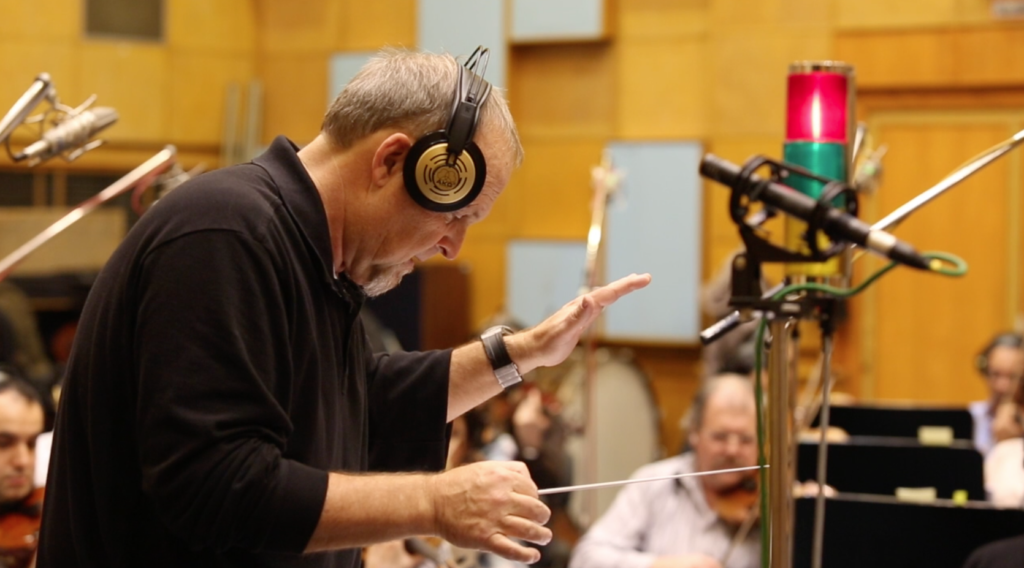
Rachel: Last time we talked to you was in February of 2020, and we had no idea what was about to [chuckle]… was about to come down. So what has songwriting, composing, what has that been like for you in COVID?
Kevin Kiner: It’s been strikingly similar to how it always is. I mean us composers are kind of hermits here in my studio with all my instruments and recording gear and computers and things, and it’s a very solitary process anyhow. So thankfully, I have a good family support system, and we have a really good bubble. So aside from not being able to eat out, my life is strikingly similar.
Rachel: Oh, that’s good, that’s good. Have you just been having Zoom calls with the other collaborators as supposed to…?
KK: Yeah, actually, I co-composed with my two sons, Sean and Dean, and they would come into my studio. It’s funny, now, they reverse commute to the house they grew up in where my studio is. And like I said, they’re in my bubble, so we get to hang out and work together. We have basically three separate recording studios, connected to my house, and so we go into each other’s rooms and patch things out.
R: That’s cool. That’s neat. I didn’t realize that your sons were also composers … That must be exciting to get to work with your children.
KK: Yeah, it’s not something I ever expected to happen. And it’s pretty rare really, almost unheard of in a way, but we get along really well for some reason, and I mean, there’s creative differences, but they never get personal or weird or anything like that. And you know, I’ve been doing this a really, really long time, so it’s pretty easy to burn out or something and that’s 37, 38 years I’ve been doing this. And they really bring a fresh perspective to things for me. And on their side, I think they grew up around it, and I have my themes, and they have access to everything I’m doing, and so it’s easy for them to kinda hook into my sound.
R: That’s wonderful. So congratulations on the Annie and Emmy nomination. That’s pretty exciting.
KK: Thank you. Yeah, it’s really an honor.
R: That must have been exciting when you got the news.
KK: Yeah. Emmy is… The other guy I know who’s nominated in my category is David Arnold who I worked with a long time ago, and he’s a good friend and one of my favorite composers. So I emailed him that if somebody beats me, it better be him.
R: [Chuckle] That… Yeah, hey, there you go. That’s a good way to look at it.
KK: Yeah. And David, he did all the Bond films for a long time, and he did Stargate the movie and Independence Day. He just did a TV series called Good Omens, which he did an unbelievable job on. In fact, he was nominated a year ago for an Emmy for that, I think.
R: So what’s it like coming back and creating music for the final season of Clone Wars? What was that experience like after such a break?
KK: First of all, it was great news when I received it because it was… I think we were all bummed that we couldn’t end Clone Wars the way we wanted to from musically to writing to story, everything. And to be given a chance to do that is really, really an unusual thing. It’s fantastic news. Having said that, I work really closely with Dave Filoni who really runs the show Clone Wars and has since the early days when it was handed off from George Lucas to him. And George and he worked together on it quite a lot during the first few seasons, and I got to work for George in the first few seasons too. It was really, really cool. So to move it forward, we hashed around a lot of ideas, and one of the things that we wanted to do was to bring an electronic element into the sound, and this is also where my sons and I… where they’re really a good resource because they’re both really into scene sounds. Funny enough, they love the retro 70s scenes and stuff like that, which I threw away all my scenes that I had in the 80s and whatever. [Chuckle] So we had to go buy some more, again, the same ones or modern versions of those.
But yeah, so that was one of the things and that came from Dave Filoni. He wanted to bring in the electronic element, and you hear a lot of it, the very end of the episode, the end of the very last episode of Clone Wars, and then we see the graveyard of the clones and we see Darth Vader, and it’s not orchestral at all. And that was a big… That was kind of a big deal because you can really mess up Star Wars if you go the wrong way. You can’t really put hip-hop in it or something like that, and you have to really be careful of your sensibility that they’re still… I think what it is is like we had to keep the grand scope. Even though it was electronic, it still sounds bigger than life, which is one of the hallmarks of this good Star Wars score.
R: What inspired you to use the synth sounds for Clone Wars, the… I wondered if it was because it was kind of a throwback, that the… If that’s why you did that.
KK: I don’t think there was that kind of a strategy. I think… And here’s a couple of things. My sons and I’ve been working on Titans and Doom Patrol, and those are heavy electronic scores. There’s super heavy electronic. And I think Dave Filoni had heard that possibly, or he heard other things that he really liked. And it was something we were really open to and we discussed openly, but ultimately, that direction comes from Dave Filoni.
R: So what’s it like for you to make a theme for a character, like with the “Ahsoka” theme? Do you think about the character and their personality and the situations that are gonna be happening or… how do you come up with a theme?
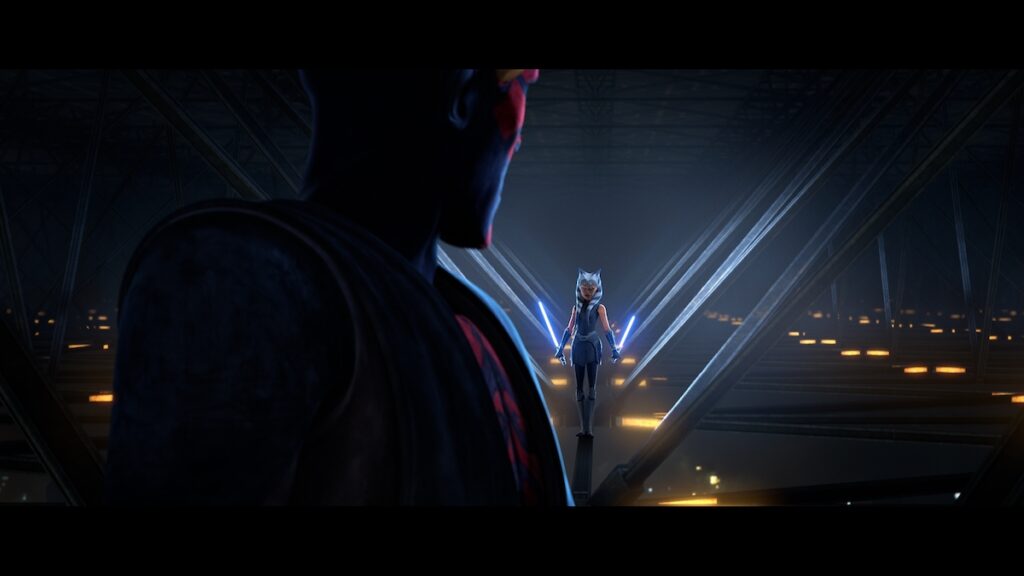
KK: Yeah, I remember… So writing the “Ahsoka” theme was the first theme I ever wrote for George Lucas. And he showed me the scene and he talked about the strength of this new female lead, and he also talked about that he wanted to have a strong female protagonist. And so George and I had plans for Ahsoka from the very beginning, and it had a lot to do with having somebody who in the classic Star Wars sense always does the right things like at the end, she’s about to die, she’s surrounded by clones that they’re implementing Order 66, they’re trying to kill her, and yet she will not kill a clone. She will not do that and even if she’s fighting for her survival, and that’s something that I don’t know that any of us could make that radical of a decision to do the right thing to that extent, for even when our own survival is… But it’s classic Star Wars. It’s within the idiom and in the realm of the classic Star Wars feel and what happens in Star Wars. So he didn’t specifically talk about that, but he talked about the strengths and she was an important character, and I saw her. And in the first few episodes and the first scene that I scored, she’s sitting alone in her cabin, kind of sitting on her bunk or on a chest that’s in there, and kind of just ruminating, I guess…
I should actually go look at that scene. I haven’t watched it for a long time, but I do remember that’s when I wrote the theme, and I just played the picture and I started with like an alto flute, which is a lower flute. Yeah, I might have even used a bamboo flute, like a Japanese shakuhachi, and I don’t… We don’t know where these melodies come from, but I definitely, there was… It’s kind of got that dichotomy of being a female but yet being a strong female and being maybe stronger than anybody else who is around you. And I tried to infuse the melody in the theme with that. However, that’s done, that’s voodoo. I don’t know how it happens, but you have these goals and they’re pretty lofty, and sometimes they work out and sometimes they don’t. It’s like baseball. You don’t always hit home runs, but I feel that I made a pretty solid contact with the ball when I did the “Ahsoka” theme. I was really happy with it.
R: Do you think that there’s something that makes something clearly a Star Wars theme or Star Wars music? You said you couldn’t do it with hip-pop, but…
KK: Yeah, right. You would never do that. [Chuckle] I think that there are things that I could talk about that John Williams started and those are like harmonically, when he started certain use of different elements, but that would be pretty technically musically talking. And I don’t even really go to that well anymore, although I did a long time ago when I started.
To me more now, it’s like I said, when we did the electronic… So the one thing that Star Wars is, is it’s nots or is it not? It’s not subtle. I mean, the music in Star Wars is… Think about da, da, da, da-da-da, da-da-da, “The Imperial March.” I mean, that it’s just really bombastic and huge. Or the melody, “The Force Theme,” da-da, da, da-da-da; that’s just beautiful. And it’s something that you hum, and it’s grand in scope. So it’s like bigger than life. It goes back to the blockbuster films, which is… It was one of the first real blockbuster films. So there’s that element. So those are the hallmarks, really strong melodies, really bigger than life scope, a grand scope. So yeah, that’s something that… Those are the real elements of what a Star Wars score should include. Now, not all the time or it just becomes… Even John Williams wasn’t always just over the top or anything like that. It has its subtle delicate moments also. But the melody is always super key. The melody is extremely strong and extremely important.
R: Very interesting. So what would you say to someone whose dream it is to have a career in music? What advice would you give?
KK: I always played in bands when I was a kid. I am a guitarist, and I mean I grew up playing Led Zeppelin, and Yes, and all kind of Electric Light Orchestra, or just experimental bands, or even blues like BB King and Muddy Waters kind of stuff. And then my parents said, “Well, that’s all fine, but you have to do something to make a living, and most musicians will end up starving.” And they’re right. I mean, it’s a very daunting task or a daunting proposition to try and make a living out of music. So I went to UCLA, and I was pre-med at UCLA. And I stopped playing music for maybe my freshman year or something, and I just could not get up away from it.
By the end of my freshman year, I joined the jazz band at UCLA. I started auditing music classes, even though I wasn’t really signed up for them. I started gigging around LA, and by probably the end of my junior year, I just… I was more into music than I was anything else. I was still getting good grades. I would have gone to med school. I had a very high GPA, and I was doing good in all the science and physics classes, but so Kenny Loggins… I don’t know if you remember Kenny Loggins, but he’s a great songwriter and a great artist. And he came to UCLA and he spoke, and there were about 3000 of us at a place called the Ackerman Union. I went and just ’cause I was a fan of his. And somebody asked him what happened with him, how he got into music, and he had the same thing happened to him. His parents said he couldn’t be a musician, it was a dead-end career, so he had gone to UC Riverside. And he was fooling around with his guitar one day, he told the story, and he looked around and he… Because he knew he still wanted to be an artist and a songwriter but he was doing all his classes, whatever his major was, and he realized that he’d spent the last two years doing what he was gonna fall back on ’cause that… And that was his plan. It was that he would go to UC Riverside to have a business degree, so he could fall back on that if music didn’t work out. And so he said, “I looked around, and I realized I spent 90% of my time doing what I was gonna fall back on.” And that just blew me away when he said that because I just… And I realized I hadn’t been spending my time on the music, which is what I love. So that really changed my point of view.

I really would love to meet Kenny Loggins some time and tell him and thank him for that because from that time on, I started gigging more, I started just looking towards music more, I started practicing more. So I guess what I’m getting at with advice is if music is like a drug to you, a good kind of drug, but a drug nonetheless that you cannot put down, that you can’t not do… I mean, I have to do music. I practice piano every day. I never… I’m a terrible pianist. I always will be moderately good at best, but I love it. And I have to have an instrument with me when we travel. It drives my wife crazy. I’m always bringing either a ukulele or a small guitar on these airplanes. And we go to Europe or cruises, whatever, and I’m making noise, and the people next door are getting upset, whatever. I just have to have music around me every single day. And if that’s what you are, I mean, then that’s what you are. And so put in your time and get really good. And don’t try to second guess things. Don’t try to go, well, this is a better career than that, or whatever. Just do what you love. I mean, I did John William style music since the 80s because that’s what I wanted to sound like. And I’m one of the only people who is still doing John William style music in movies. I mean, [chuckle] there’s very little work in that realm these days, but it paid off.
R: Well… If you’re listening, Kenny Loggins, [chuckle] there’s…
KK: Yeah, you bet.
R: We can maybe make an interview happen. That would be amazing. That’s really cool. I love that story. That’s great. And I think that should be very encouraging, to not make your backup your main priority.
KK: Yeah. Don’t spend all the time… We call it shedding, wood shed. Don’t spend all your time working on what you’re gonna fall back on. Instead spend all your time getting really good … But know that it’s a daunting career. You better love it.
R: Well, thank you so much for coming to talk with us. And good luck at the awards. That will be very exciting, hopefully. And congratulations on the Clone Wars final season.
KK: Thank you.
R: And we’re looking forward to the future. You have The Bad Batch coming up, right?
KK: Yeah. Bad Batch is coming up, and there will be soundtrack releases for that. Also, if anybody wants to, go to my website. I have music there. I don’t make any money on it. I don’t sell the music, but you can listen to my music. And I’m just putting up… It’s not quite up yet, but in a few days, we’ll have a four-year consideration video up that will have music only to the… With some of the video from the episode I’m nominated in, so you’ll be able to hear the music without any of those pesky things like dialogue and… [laughter]
R: Thanks again for taking time to talk with us. We really appreciate it.
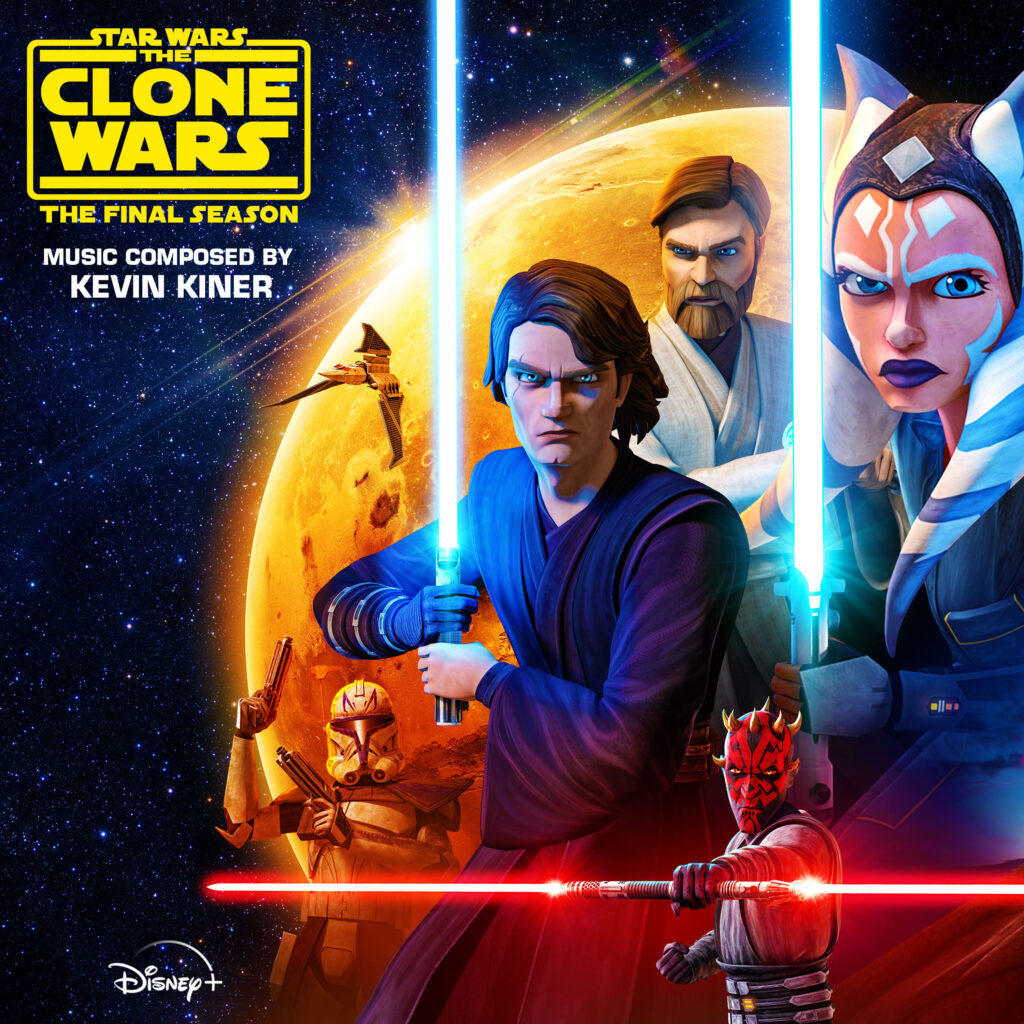
What did you think of the final season of Clone Wars and what is your favorite part of the music of Star Wars?
Edited by: Kelly Conley


![[INTERVIEW] Composer Kevin Kiner (‘Star Wars: The Bad Batch’)](https://www.rotoscopers.com/wp-content/uploads/2021/04/Kevin-Kiner-Promo-Photo_Picture-By-Mercy-Kiner-1024x568-1-750x375.png)

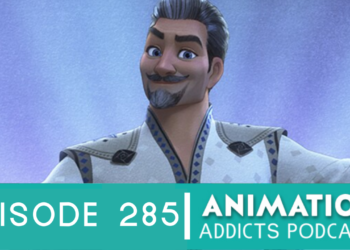
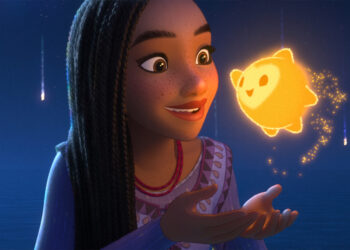
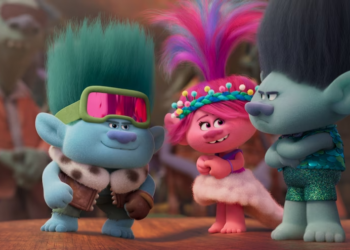
![[TRAILER] LeBron James Slam Dunks Matrix Style in ‘Space Jam: A New Legacy’](https://www.rotoscopers.com/wp-content/uploads/2021/04/space-jam-75x75.jpg)